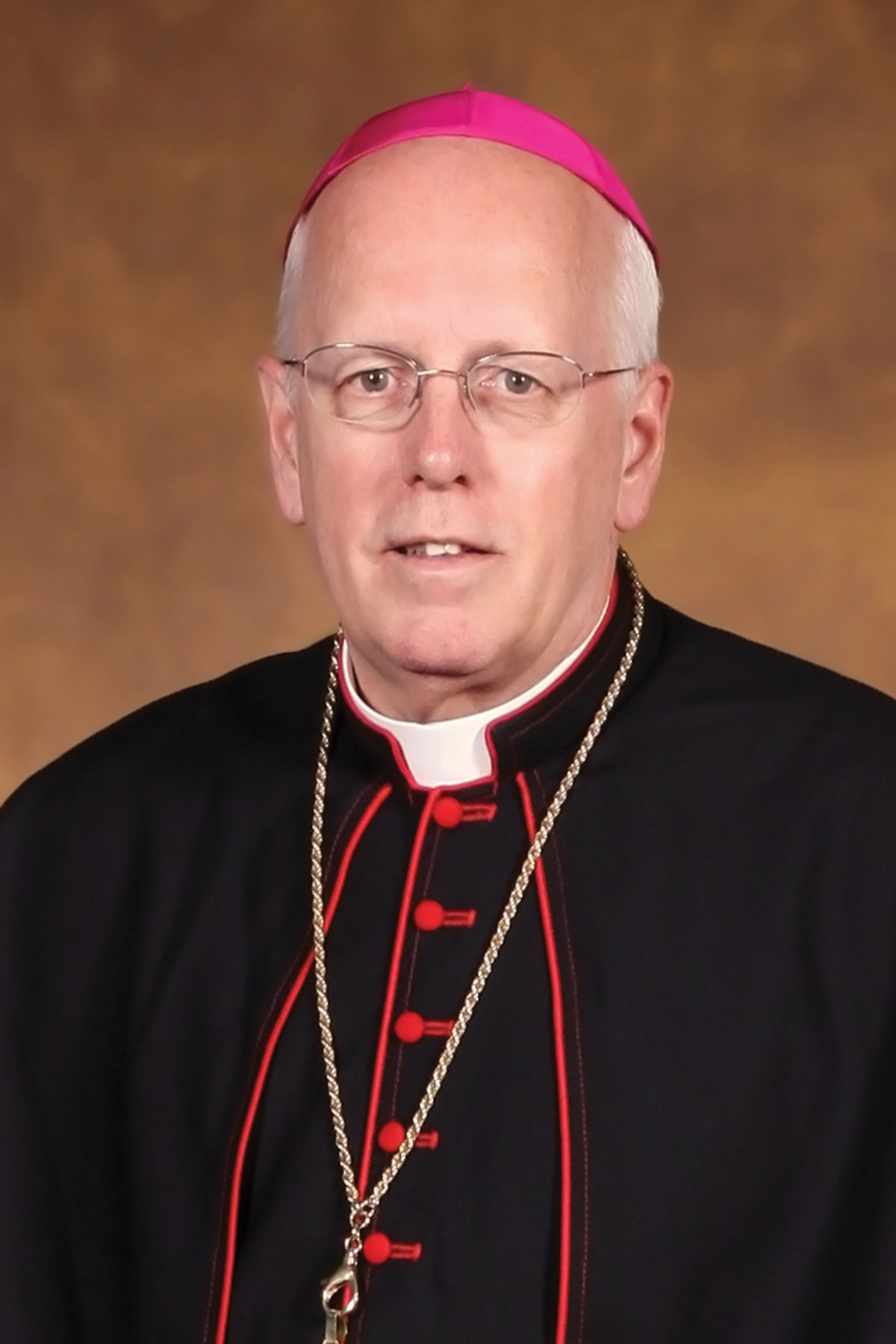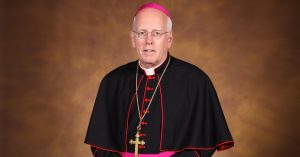
These are troubling times, as are all times. Yet these are also hopeful times, as are all times… As I write this column our nation had just experienced the violent racist hatred expressed in Virginia which was then compounded by the violent religious hatred expressed in terrorist attacks in Spain, both of which not only resulted in the death of innocents but also a certain death in the fabric of society. Hate, racism, violence and killing are expressions of the evil one. We must not allow that fallen source to weaken our faith or to lessen our resolve to work for a more perfect union. Jesus shows us the way; after the cross came the resurrection.
My statement in response:
The recent violence in Charlottesville, Virginia saddens and shocks all people of good will. It also ought to prick our consciences. Racism, especially in this instance of white supremacy, is sinful. It is to be both rejected and condemned. Hateful and criminal violence is only its most extreme expression.
Inherent in our Catholic faith is that all persons are created by God in His likeness and, therefore, are children of God. Every person in all our diversity is deserving of respect and the freedom to live lives of dignity and safety.
As St. Paul reminds us: “For all of you who were baptized into Christ have clothed yourselves with Christ. There is neither Jew nor Greek, there is neither slave nor free person, there is not male or female; for you are all one in Christ Jesus.” (Gal 3:27-28). Christ’s invitation is offered to all.
Let us reject all forms of violence and pray for greater respect, mutual understanding, and reconciliation.
Lord, make us instruments of your peace…where there hatred let us sow love.
A more profound response was offered by Philadelphia Archbishop Charles Chaput, OFMCap, former bishop of Rapid City:
“Racism is a poison of the soul. It’s the ugly, original sin of our country, an illness that has never fully healed. Blending it with the Nazi salute, the relic of a regime that murdered millions, compounds the obscenity. Thus the wave of public anger about white nationalist events in Charlottesville this weekend is well warranted. We especially need to pray for those injured in the violence.
“But we need more than pious public statements. If our anger today is just another mental virus displaced tomorrow by the next distraction or outrage we find in the media, nothing will change. Charlottesville matters. It’s a snapshot of our public unraveling into real hatreds brutally expressed; a collapse of restraint and mutual respect now taking place across the country. We need to keep the images of Charlottesville alive in our memories. If we want a different kind of country in the future, we need to start today with a conversion in our own hearts, and an insistence on the same in others. That may sound simple. But the history of our nation and its tortured attitudes toward race proves exactly the opposite.”
I tried in my homily that weekend to offer a glimmer of hope as expressed through the love and actions of Jesus toward a worried mother who sought him out to save her dying daughter. Below is an edited version:
“This has been another week filled with sadness, violence, and disrespect for life around the world and in our own country. We pray for all those adversely affected in any way and for reconciliation and peace. We look to our Lord Jesus Christ who is the way, the truth and the life to guide us. He is the hope in the midst of sadness, violence and disrespect for life.
With this real world background we listen to today’s Gospel which seems to have an uncharacteristic harshness to it. Of note is the reaction of the disciples to the Canaanite woman seeking healing for her daughter. Finding her annoying they said: ‘Send her away.’ That is not exactly a charitable reaction to a frightened mother. To put it in some perspective she likely was a pagan and certainly a foreigner in the eyes of the Jewish disciples, and therefore an outsider in the prevailing culture. Jesus changed all that and the disciples themselves, for later in their ministries they traveled the world to share the Good News of Jesus Christ with all peoples. Their message became not send them away but that of our psalm response: ‘O God, let all nations praise you.’
A loving mother in agony over the illness of her daughter, against all the societal rules sought relief from Christ. Her love moved her to action. She had that core natural sense that Jesus could heal her daughter.
Jesus by publicly responding to her changed the rules and underscored that he came that all might have life and have it to the full, even those looked down upon by the world. God loves all, saint, sinner and all of us who struggle between the two. This message that Jesus became man to personally deliver was prophetically noted in our first reading from Isaiah some 500 years before in which the Lord declared: ‘My house shall be a house of prayer for all peoples.’ St. Paul affirms it in our second reading that Christ’s mercy is available to all. This was an extraordinary societal change which likely baffled the disciples at first. It had to be hard for them to overcome their prejudices because change is hard. Christ can give us the strength to do so if we listen to him.
My first pastorate as a priest was in a picturesque rural parish affectionately known as St. Mary of Pine Bluff in Wisconsin. It was dedicated to the Blessed Mother and was located in a beautiful unincorporated town out in the countryside. It was settled by Irish and German immigrants in the mid-1880s. In the sanctuary of the church were statues of St. Patrick, the patron of Ireland, and St. Boniface, the patron of Germany. In most places in the 1800s the Irish and the Germans demanded separate parishes, not unlike so many ethnic based parishes in our diocese. However the fiscally prudent decision was made to have one parish. The German families sat on one side of the Church and the Irish on the other. Located between St. Patrick and St. Boniface was the tabernacle, the presence of Christ. It symbolized that when Christ is at the center, all of us can live together despite our human differences, real or imagined.
I was told that tension was high when, not unexpectedly, young people fell in love and ‘inter-married.’ The real tension came when the couple had to choose which side of the church they would sit together as a new family. That division was gone by the time I became pastor. For God’s house had become a house of prayer for all people.
In a book entitled, a ‘New Song to the Lord’, the author tells of being a member of a choir. The group begins rehearsals for a new musical program shortly after a successful public concert. Gone is the familiar music so much fun to sing. In its place is new music, new words to learn. The early rehearsals are painful. Individuals look back with fond memories, nostalgic for the music they had sung so well. Some wondered why we have to learn new things at all, let’s just sing what we know.
Yet as time passes slowly but surely something beautiful comes into existence. Finally the day comes and the choir performs the new and now familiar music for the enjoyment of others but also for themselves. The past music remains in their repertoire and in their hearts and the new music enhances its richness.
May we with grateful and open hearts learn the music of our day without compromising Christian values, and welcome all God’s children. ‘O God, O Jesus Christ, let all the nations praise you.’
It is only when we accept others as brothers and sisters in Christ that hatred, racism and violence will cease. As Archbishop Chaput so powerfully stated, this can only begin with conversion of or own hearts.”

